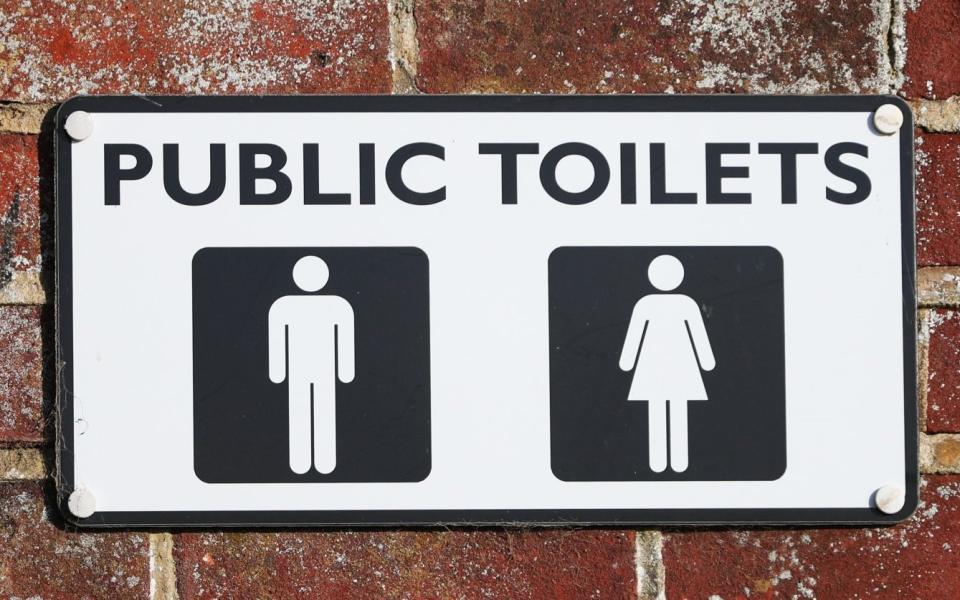Single-sex lavatories to be mandatory in all new public buildings

New office buildings, schools, hospitals and entertainment venues must have separate male and female lavatories, ministers will declare this week, in a move to rein in the “forced sharing” of gender-neutral facilities.
The Telegraph understands that the Government will formally announce that it is acting to prevent non-residential buildings from being built solely with “universal” lavatories. The move will involve changes to building regulations and planning guidance.
The plans, being spearheaded by Kemi Badenoch, the equalities minister, were quietly approved by ministers last month after Mrs Badenoch was warned that some children were avoiding using lavatories at school because they only had access to gender-neutral facilities.
Mrs Badenoch has insisted that it is both legal and “important” to provide single-sex spaces for men and women.
It is likely to be billed by ministers as a “common sense” approach to help stymie a growing trend of gender-neutral lavatories becoming the default option in new buildings.
The move follows a review launched by Robert Jenrick, who was Housing Secretary until last year, which sources said had identified concerns held by women about the reduced privacy and longer queues resulting from gender-neutral facilities.
‘Dignity and privacy’
Women’s rights groups have warned that women are “disadvantaged” by gender-neutral facilities that contain a mixture of urinals and cubicles, “since they cannot use urinals, whereas men can use the cubicles”.
“Furthermore, many women and girls are unwilling to walk past the urinals to get to the cubicles in the former men’s facilities,” the Fair Play for Women campaign group said in one submission to the Government.
A Government source said: “It is vital that women feel safe and comfortable when using public facilities and that there is a greater emphasis on provision that is focused on dignity, privacy, tolerance and respect for all.
“These changes will stop the march of ‘universal’ and forced sharing of spaces - with a focus on guaranteeing privacy for all. This is a common sense approach that is inclusive for all.”
The guidance will apply to buildings over a certain size, which will be set following a technical consultation in the autumn.
Sources said that ministers and Downing Street want the changes to apply to all buildings that operate as business premises.
Government Property Agency guidance will also be updated to ensure that new or re-developed Government-owned buildings provide single-sex toilets.
Women’s safety
In 2019, the Old Vic Theatre in central London became the latest venue to face criticism when it converted all of its male and female lavatories to gender-neutral toilets, as part of a refurbishment.
The theatre doubled the number of lavatories in the building and said it would mark the new rooms with pictures of a cubicle or a urinal, “allowing people to make their own decision about which loo is suitable for them”.
Last year, responding to claims that the proposed changes were “transphobic”, Mr Jenrick told The Telegraph: “This was a simple matter of trying to protect the safety and privacy of women. Many women... would prefer there to be separate ladies and gents loos in public buildings.”
He added that a requirement for single-sex toilets would mean that “women who are using those facilities will have the confidence and security of knowing that if they want to, they can go to their own toilets, and they won’t find other people in them. I think that’s the right thing to do.”

 Yahoo Finance
Yahoo Finance 